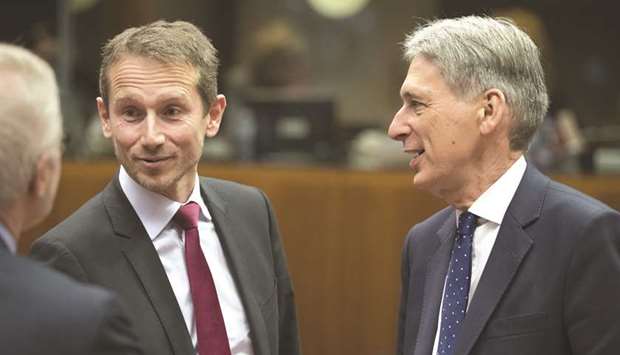Denmark’s government says it could have avoided losing billions of dollars in tax revenue if the lines of communication inside the European Union had functioned better.
The Danes are now trying to retrieve about $2bn that was stolen from state coffers through fraudulent claims handled by banks and targeting dividend-tax rebates for offshore clients. The trade they used is known as cum-ex, and financiers doing it moved to Denmark after Germany banned the practice in 2012.
Kristian Jensen, Danish finance minister, wants to know why Denmark wasn’t warned of the risks by other EU states that were already cracking down on such trades. He says Denmark plans to ask the EU Commission to look into the complete breakdown in communications.
“Someone should have raised a red flag. Someone should have picked up the phone and said ‘hey, this might happen to you,”’ Jensen said in an interview on Friday. “But that didn’t happen, and now we’re dealing with a big scandal.” He describes the amounts of money involved as “staggering, by any account.”
Banco Santander SA last month became the latest addition to a long list of lenders targeted by prosecutors in Germany in a case that may have cost taxpayers in the country about €10bn ($11.5bn).
In Denmark, Danske Bank A/S, Nordea Bank Abp and SEB AB have now been asked by the tax ministry to provide information relating to the case. The three banks were once part of an agreement with the government in which they acted on behalf of off-shore clients to handle claims for tax rebates on dividends. The agreement was ended in 2015 after it emerged that many of those claims were fraudulent.
Karsten Lauritzen, Denmark’s tax minister, says there’s no evidence at this stage to suggest that Nordea, Danske or SEB did anything wrong. But the ministry “has asked the banks about the size of the trade of borrowing shares and got replies,” Lauritzen said.
“The feedback suggests it was never a major trade, but some banks did make money from it.” He also said that local authorities “don’t know what Danish lenders have done towards foreign jurisdictions.”
Lauritzen has asked the Danish Financial Supervisory Authority to start investigating the matter. Nordea, Danske and SEB will be asked to provide details on a 900mn-krone ($137mn) refund to a “large foreign pension fund” that took place before 2015, he said.
The fund, which he didn’t identify by name, claimed a 1.3bn-krone refund in 2016.
Danske, Denmark’s biggest bank, says it hasn’t identified any issues that would implicate it in wrong-doing in relation to cum-ex transactions, and that it doesn’t expect to be the target of a tax-fraud investigation. The bank is still trying to deal with the fallout of allegations it was at the centre of one of Europe’s worst ever money laundering scandals, which has cost shareholders about $16bn this year.
Nordea is working “closely with the authorities and will naturally help with the new investigations that will now begin,” spokeswoman Jenny Wickman said. “It is important to stress that Nordea will not accept being misused for the purposes of tax avoidance and is not involved in cum-ex.”
SEB said last month it hasn’t offered such transactions to any clients, in connection with German investigations. “We distance ourselves from that type of arrangement,” the bank said on October 18.
Lauritzen says his ministry has asked Germany to explain why it didn’t share information about the cum-ex trades after they became known to authorities there. He says Denmark was able to prevent the practice spreading to Norway by informing the authorities there in good time.
Jensen says that the cum-ex scandal in Europe could have been much smaller. The fact that it has cost taxpayers so much money “clearly shows the need to enhance EU cooperation, one way or another,” he said.
It’s not clear that Denmark will ever be able to get its money back from the original claimants, according to Lauritzen.
“We may apprehend the people responsible for this fraud but it may be difficult to get at their money,” he said.
“What we can get instead is money from those who aided them along the way, such as advisers and banks.”

Philip Hammond, UK chancellor of the exchequer (right), speaks with Kristian Jensen, Denmark’s finance minister, ahead of a meeting of European Union (EU) finance ministers in Brussels (file). Jensen wants to know why Denmark wasn’t warned of the risks by other EU states that were already cracking down on fraudulent claims.
